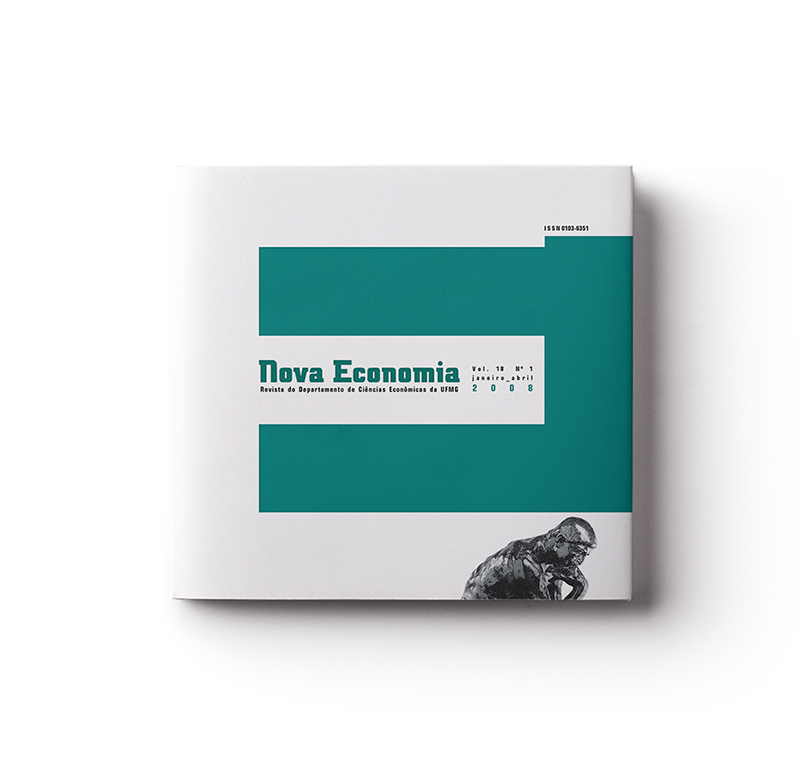O crescimento econômico dos municípios mineiros tem sido pró-pobre? Uma análise para o período 1991-2000
Keywords:
pro-poor growth, incomeAbstract
The main goal of this paper is to analyze the relation between economic growth and poverty from a qualitative point of view. In other words,it seeks to analyze how economic growth in Minas Gerais’ municipalities proved to be an efficient mechanism of poverty reduction between 1991-2000. Results showed diversity in the state of Minas Gerais. There are regions with good quality of economic growth, where “poverty-growth” elasticity is high; that is, there is a greater capacity to reduce poverty for a determined growth rate. This result is explained not only for lower intensity of poverty, but also for greater impact of economic growth on the poor, that is, “quality” of city growth. On the other hand, there are regions with low quality of economic growth where “poverty-growth” elasticity is low. Finally, trends of socioeconomic characteristics of each of the four economic growth classes were analyzed.Downloads
Published
2009-06-05
How to Cite
RESENDE, G. M. O crescimento econômico dos municípios mineiros tem sido pró-pobre? Uma análise para o período 1991-2000. Nova Economia, [S. l.], v. 18, n. 1, 2009. Disponível em: https://revistas.face.ufmg.br/index.php/novaeconomia/article/view/500. Acesso em: 26 feb. 2026.
Issue
Section
Regular Issue
License
Authors who publish with this journal agree to the following terms:
- Authors retain copyright and grant the journal right of first publication with the work simultaneously licensed under a Creative Commons Attribution 4.0 International License that allows others to share the work with an acknowledgement of the work's authorship and initial publication in this journal.
- Authors are able to enter into separate, additional contractual arrangements for the non-exclusive distribution of the journal's published version of the work (e.g., post it to an institutional repository or publish it in a book), with an acknowledgement of its initial publication in this journal.
- Authors are permitted and encouraged to post their work online (e.g., in institutional repositories or on their website) prior to and during the submission process, as it can lead to productive exchanges, as well as earlier and greater citation of published work (See The Effect of Open Access).




